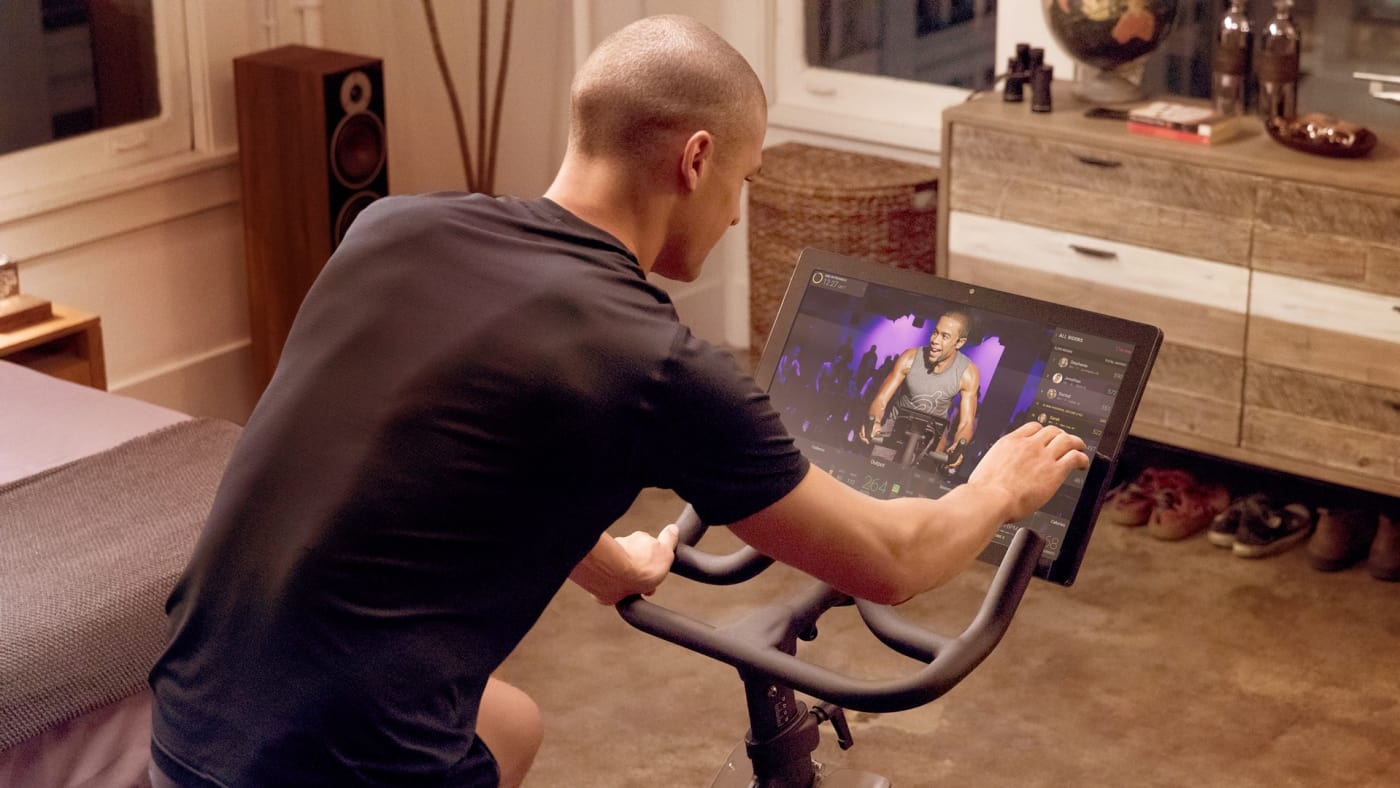Peloton sues Flywheel in what could be the ultimate high-tech fitness fight
The war of the connected fitness equipment has finally begun. Peloton Interactive Inc., whose at-home bikes replicate a boutique fitness studio environment, is suing Flywheel Sports Inc. for allegedly stealing their technology.
In a lawsuit filed Wednesday in U.S. District Court in Marshall, Texas, Peloton claims its competitor copied its best-selling stationery bike using the company’s proprietary patents. In the formal complaint, the New York City-based company says Flywheel, a brick-and-mortar boutique cycling studio, decided to shift gears after increasingly losing customers to Peloton.
From the complaint:
[R]ather than innovating and investing, as Peloton had, Flywheel infringed the Peloton Patents by creating a copycat of the Peloton Bike experience called the ‘FLY Anywhere’ that, among other things, detects, synchronizes, and compares the ride metrics of remote users on a graphical user interface. With its FLY Anywhere bike, Flywheel infringes the Peloton Patents by, among other things, displaying live and archived cycling class content to remote riders, tracking a remote rider’s performance, and comparing that remote rider’s performance against the performance of other remote riders.
In addition, Peloton shares a rather head-scratching incident in which, three months before Flywheel announced its FLY Anywhere bike, one of its largest investors, Michael Milken, attended a private investment conference to meet with chief executives of several companies, which included Peloton. The complaint claims that Milken falsely presented himself to Peloton cofounder and CEO John Foley as a potential investor, going so far as to request and obtain information from Foley about the company’s technology and business strategy.
Peloton says Milken did not disclose his involvement and multimillion-dollar investment in Flywheel. “On information and belief, Milken provided this information to Flywheel, which then used this information to facilitate the development, sales, and marketing of the infringing FLY Anywhere bike,” concludes Peloton.
Flywheel, along with Milken, denies any wrongdoing. In a statement provided to Fast Company, a Flywheel spokesman called the suit “a classic example of a big business trying to intimidate a competitor out of the marketplace.”
In fact, says Flywheel, it introduced indoor cycling with signature features, such as scoreboards and individual personalized performance trackers eight years ago. Peloton, meanwhile, only introduced its technology four years ago, “employing many of the features first pioneered by Flywheel.”
The market for connected home equipment has surged in the past year, with a rush of startups claiming to be “the Peloton” of everything from weight lifting to rowing machines, and even jump ropes. Peloton, meanwhile, has moved beyond its cult favorite bike. In the last year, the company announced a $3,995 treadmill that offers on-demand boot camp and circuit-style classes. Over 250,000 Peloton Bikes have been sold since the company’s inception. In 2017 alone, Peloton earned more than $300 million.
Investors are sold on Peloton’s future
Last month, Peloton raised a $550 million round of financing led by venture capital firm TCV. The six-year-old brand is now supposedly worth $4.15 billion, with reported plans to pursue an IPO in the coming year. It also has plans to dip into global markets, starting with the U.K. and Canada, followed by European cities.
Foley and Peloton received U.S. patents for the bike technology, but as the Wall Street Journal notes, protecting intellectual property in the fitness world has often proved difficult. With billion-dollar companies on the line, however, that might be changing.
The filed complaint details the hard-won journey of Foley and his associates as they attempted to build a bike that could satisfy live class attendees, while also assuring investors it could indeed be done. It notes the many technical challenges, hardware challenges, and the “dozens of investors” who declined the opportunity to invest in Peloton.
“Yet through research, ingenuity, and persistence, Peloton pushed on, working with two core manufacturing partners to design and produce the necessary high-tech, sleek bikes and tablets,” reads the complaint. “While companies like Flywheel provided an exciting and competitive in-studio experience, Peloton was the only company to think beyond the studio experience—which has both time and space constraints—to focus on creating the technology and product that would allow the experience to be transported into the home.”
(24)



